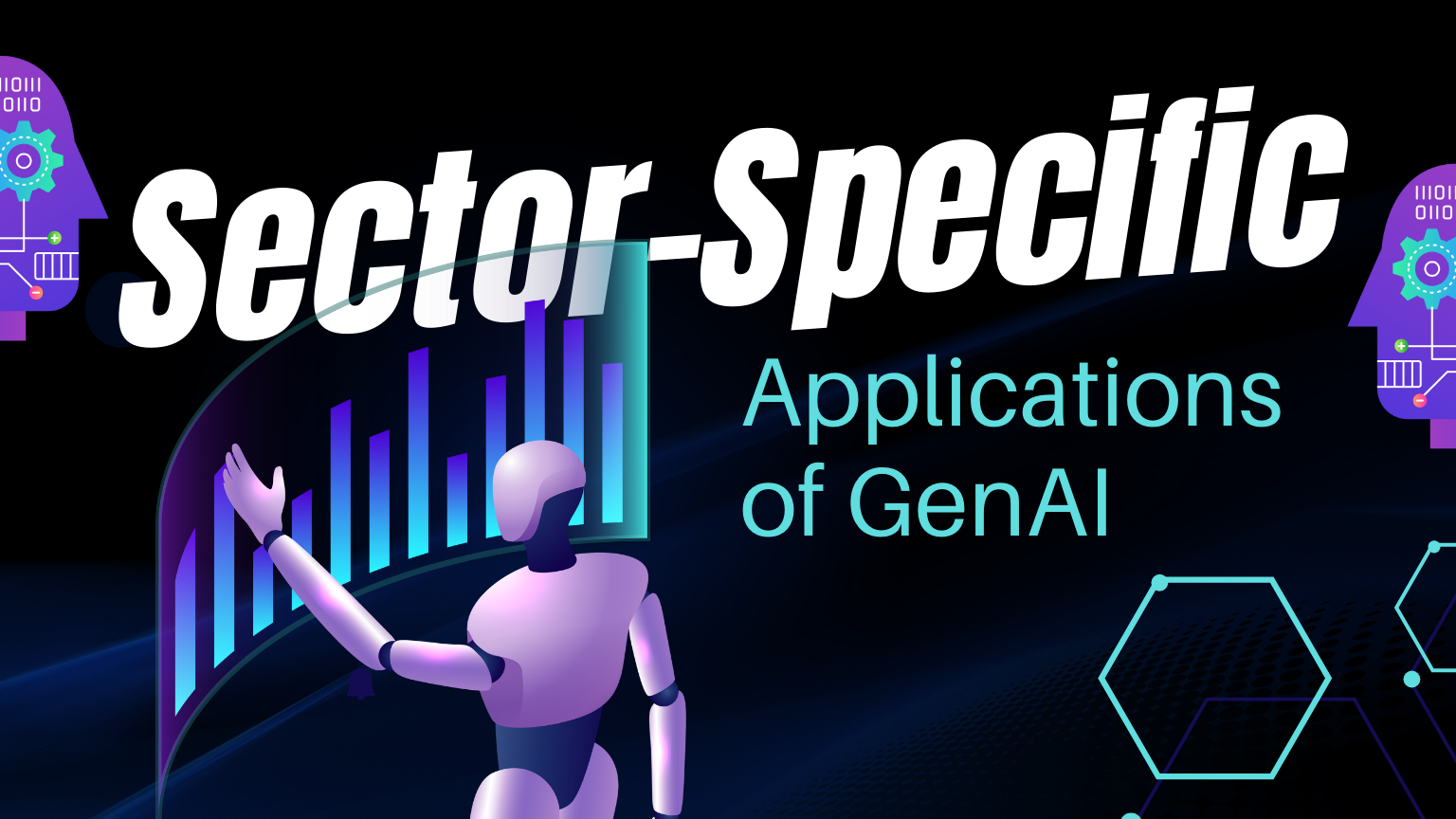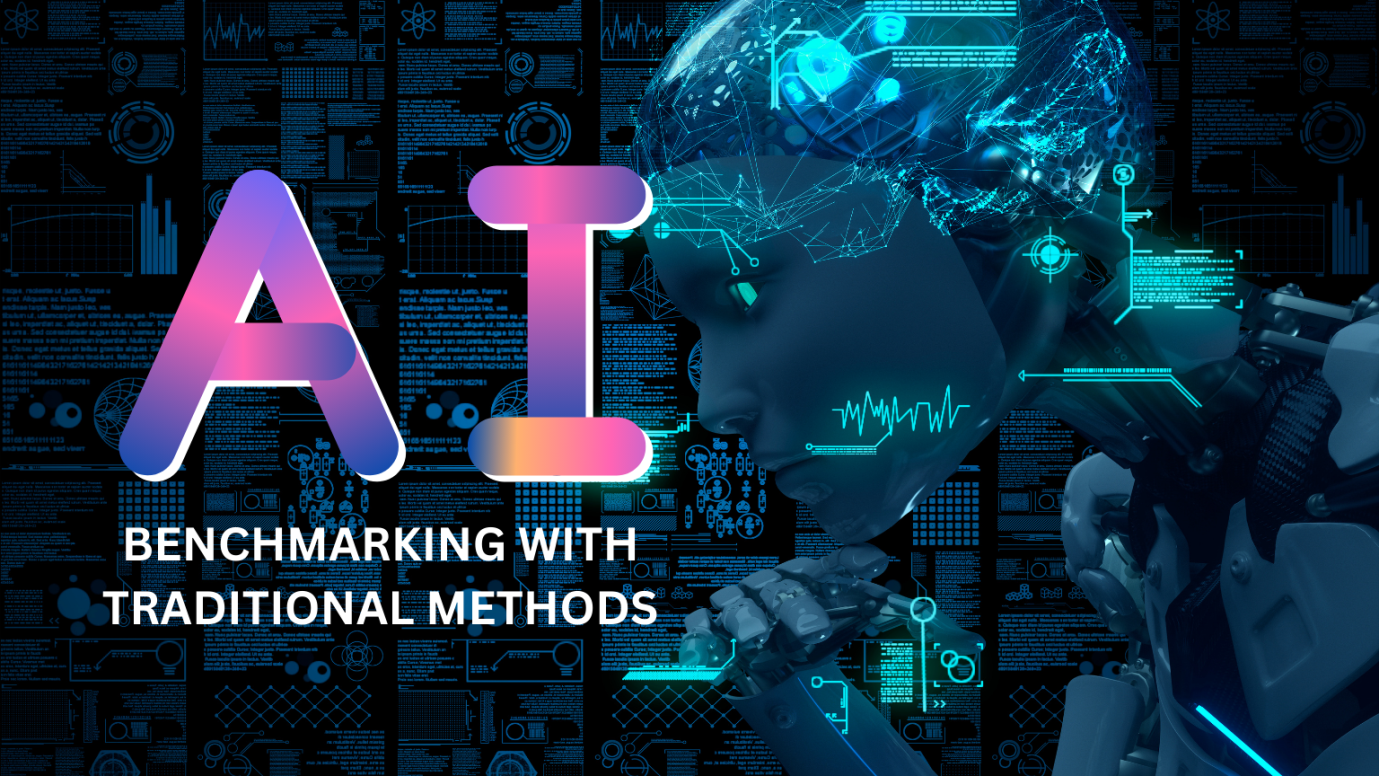How Businesses are Leveraging GenAI to Scale Operations

Business operations are already changing dramatically with the introduction of Generative Artificial Intelligence. It has been claimed that by 2024, nearly 65% of organizations regularly use GenAI tools compared to the previous year, which reported nearly double the statistic.
GenAI has penetrated different industries such as technology, manufacturing, and retail. Businesses employ GenAI to provide better customer service, increase efficiency in supply chains, and transform product development. For example, the banking industry can potentially add a sum of $200 billion to $340 billion annually by full implementation of applications of GenAI.
This blog delves into how businesses are using GenAI to scale operations up and gives research-based insights on the transformative impact of GenAI across industries.
Research Methodology
Data Collection Process:
This analysis is secondary research, meaning that it uses pre-existing data from reliable sources to understand how businesses are adopting Generative AI (GenAI) to scale up operations. We have done deep studies and analyses of industry reports, scholarly articles, and case studies from leading consulting firms and academia.
The primary sources would thus be McKinsey & Company’s research on the AI adoption patterns, Deloitte’s analyses on business efficiency based on the effects of AI, and peer-reviewed journals with specific coverage on GenAI implementations in particular industry domains. In this respect, it would result in comprehensive and well-informed opinions regarding current practices and results of GenAI.
Scope and Limitations:
The scope of the study encompasses a number of industrial sectors, such as technology, manufacturing, and retail, focusing on the organizations that have implemented GenAI.
The companies vary by size and geographic location, hence covering an all-rounded view on the adoption of GenAI. However, reliance on secondary data has some limitations.
Any available information may not be provided equally for all industries or regions, which might lead to gaps in understanding specific sectoral or local nuances.
Further, the fast-changing nature of AI-related technologies means that some of the data could be fast rendered outdated, while proprietary access to company data cannot be gained, which confines the level at which it is possible to present an analysis on internal operational impacts.
However, despite such limitations, secondary research methodology opens doors to understanding trends and strategies regarding the usage of GenAI across different business contexts
Core Findings on Generative AI Adoption and Impact

Across many industries, GenAI is coming as a disruptive innovation that makes deep changes and adds efficiency. Here, we have GenAI trends, operational benefits, and sector-specific applications in technology, manufacturing, retail, healthcare, finance, and media.
Trend Analysis: Key Areas of GenAI Adoption
In recent years, the penetration of GenAI has grown to an exponential level in areas of customer service, logistics, product development, and most recently, healthcare finance, and media.
Organizations report using GenAI fully in at least one area to the tune of 65% according to McKinsey; so far the pace has been fast in all sectors
Most common applications that are affecting the organization are improving customer experience, optimizing operations, and creating data-driven knowledge.
Key Trends by Sector
- Technology: GenAI code generation and quality control tools have increased the productivity of software development.
- Healthcare: GenAI supports the analysis of medical imaging, diagnostics, and personalized treatment plans.
- Finance: GenAI has redefined financial services-from fraud detection to automated reporting-another function aiding with risk management and customer service.
- Media and Entertainment: GenAI helps in the creation of custom content through personalized edits, automation in the editing process, and aiding in overall content production, which help satiate the growing appetite for digital media.
Operational Benefits of GenAI
GenAI adoption comes with immense operational benefits-efficiency and cost benefit improvement to better associate with customers.
- Efficiency Gains: Automation of routine and complex work empowers staff to focus on more strategic ones, which have resulted in productivity gains for industries such as finance and healthcare.
- Cost Economies: Operative GenAI tools like AI-based customer service chatbots simplify operations, thus eliminating big support teams and the operational cost that accrues from them.
- Personalized Exchanges: The GenAI-driven interactions enhance the customer experience through personalized responses and services as they are tailored according to specific preferences.
Sector-Specific Applications of GenAI
 Technology Sector
Technology Sector
- Code Completion: Tools such as Amazon’s CodeWhisperer support real-time coding with less time spent on routine coding and allow developers to work on complex problem-solving .
- Quality Testing: AI-based testing tools automatically detect bugs and vulnerabilities, leading to improved software quality. This change increases reliability and security of digital products.
Manufacturing Sector
- Predictive Maintenance: The data, produced by machines, is used by GenAI to predict breakdowns of different equipment. This gives time for suitable maintenance at the right time with minimal downtime. It has thus proved most useful to the automotive and electronics manufacturing industries.
- Quality Control: AI-powered inspection systems scan the quality of the products in real-time, detecting defects and thereby ensuring quality production, reducing costs associated with waste and rework.
Retail Sector
- Personalized Recommendations: Gen AI processes consumer information to offer personal suggestions and, through this, makes the shopping process more interactive and also boosts sales.
- Inventory Management: Gen AI foresees trends on demand in sales for retailers to manage the required stock levels. In return, retailers can reduce overstocking and stockout situations while ultimately cutting inventory carrying costs.
Healthcare Sector
- Medical Imaging: It scans X-rays, MRIs, and CT scans with great accuracy, meaning that a doctor saves time compared to manual analysis. GenAI can detect anomalies that would otherwise be missed, thereby helping diagnose conditions such as cancer in the very early stages.
Personalized Medicine: Predictive models of GenAI uses patient data to develop individualized treatment plans, hence improving the patients’ prognosis with fewer chances of adverse reactions. Personalized approach in healthcare provides responsiveness to individual needs.
Finance Sector
- Fraud Detection: Huge uninterpreted data from transactions will be processed using GenAI models to identify unusual patterns that may mark fraudulent activities, thereby securing the assets as well as building trust among financial institutions.
- Automated Reporting and Compliance: GenAI enables the automation of detailed financial reports and ensures that all relevant regulatory requirements are met through the employment of constant data analytics for discrepancies.
Media and Entertainment Sector
- Content Generation: GenAI helps create and edit digital content- from automated news summaries to tailored music recommendations.
- Audience Engagement: Using viewer behavior analysis, GenAI can shape appropriate content recommendations that lead to increased engagement on platforms like streaming services and social media.
Benchmarking with Traditional Methods:
 One of the important points is that GenAI represents an enormous advantage over the traditional method when it comes to efficiency, cost effectiveness, and speed in most industries.
One of the important points is that GenAI represents an enormous advantage over the traditional method when it comes to efficiency, cost effectiveness, and speed in most industries.
Efficiency: In software development, tools like Amazon CodeWhisperer assist developers by giving code snippets to help in faster development with fewer errors. Through automation, such tools allow the developer to focus more on such complex tasks and thus improve overall productivity.
Cost: AI chatbots in customer service address routine or simple questions, thus reducing the requirement for large support teams and lowering the operational cost. “The use of GenAI saved Octopus Energy time by drafting email responses, increasing by 18% customers’ satisfaction scores compared with responses from humans.”
Speed: With GenAI-powered predictive maintenance in manufacturing, analytical data from equipment can be monitored and potential failures predicted before they occur, thus ensuring reduced downtime and costs involved in maintenance. Companies can undertake proactive maintenance since it forecasts potential problems that might bring out a halt in continuous operations
Alignment with Industry Trends:
The trends are going with the wave of the industry in adopting GenAI toward digital transformation and automation. According to a 2023 report from the National Bureau of Economic Research, the most common generative AI tools were being accessed by hundreds of millions of users each month.
This surge reflects a wide-scale adoption of advanced technologies to improve competitiveness. But data privacy, for example, and the high skills required should hinder some firms from adopting the trend. Yet overall, the trend is upward, and it suggests an increasing acknowledgment of the potential GenAI has to revolutionize business operations across industries.
Recommendations for Leveraging GenAI

Practical Tips: Effective use of GenAI involves strategic action encompassing employee training, robust data governance, pilot projects as an innovation trigger, and future-proofing. By implementing the recommendations stated above, organizations will fully realize the potential of GenAI with minimal risks associated with it.
1. Invest in Employee Training for AI Tools
A well-trained workforce is key to making the integration of GenAI successful in the operations of an organization. Employees must understand how to use AI tools effectively ethically.
- Comprehensive Training Programs: Develop modules on basics of AI, applications related to the company’s area of business, and issues with ethics. For example, at JPMorgan Chase, prompt engineering training has been rolled out for all new joiners, which readies them for a world with AI-iotarians, thereby increasing productivity of the workforce and decreasing repetition.
- Continuous Learning: AI technology is constantly changing; thus, there is the need for continuous learning. You should, therefore, encourage employee participation in workshops, webinars, and courses to keep them updated on new developments. For instance, IBM uses generative AI to create personalized learning experiences with its employees so that they are competent on current technologies.
- Cross-Functional Collaboration: Encourage AI specialists to collaborate with other functions to foster knowledge sharing and innovation. This will ensure AI is actually developed and integrated across business functions.
2. Encourage Innovation Through Pilot Projects
Pilot tests facilitate organizations to pilot GenAI applications at scale before deploying them in an entire organization.
- Identify Use Cases: Specific domains where Gen AI can create value-areas that could automate the customer service chain or improve the development of new products.
For instance, the EY leaders have been racing to leverage Gen AI across the organization and rolled it out to 400,000 employees to boost productivity and innovation.
- Measure Outcomes: Determine specific measurable quantities that may be used to indicate the outcome of successful pilot projects, in terms of efficiency improvements and costs saved, and in terms of user acceptance. Lessons learned from this will inform full-scale roll out decisions.
- Iterate and Scale: Refine AI strategy based on pilot work to scale successful applications broadly across the organization. This is an iterative approach, always open to learning and adjusting courses as needed for continuous improvement and adaptation.
Future-Proofing Strategies
To remain competitive, organizations must adopt strategies that allow them to adapt to the evolving GenAI landscape.
Stay Informed: Stay up to date with developments in AI technologies and trends in industry. Attend AI conferences, subscribe to relevant publications, and participate in the AI community.
By such proactively strategic approaches, the organization is acutely aware of arising opportunities and challenges.
Flexible Infrastructure: The Scaling and adaptation of IT infrastructure to accommodate new tools and applications provided by AI must be made flexible.
In many cases, cloud-based solutions are more flexible to be availed when needed for integration of evolving technologies. AWS emphasizes a robust data strategy, including a complete approach to governance in the implementation of successful generative AI.
Cultivate an Innovative Culture: Train people to recognize and appreciate change. Create a culture where experimentation is encouraged, risk is taken to introduce new ideas, and innovative problem-solving is recognized and rewarded. It is the cultural change that needs to be innovatively undertaken with AI technologies.
Strategic Partnerships: Connect with institutions for AI research, technology providers, and industry consortia to tap into leading edge development and best practices knowledge. These partnerships help provide insights and relevant materials that support the organization’s AI pursuits.
By implementing these recommendations, organizations will be in a position to harness GenAI to enhance operations, innovation, and new market leadership in the ever-changing technology landscape.
FX31 Labs: Generative AI Solutions

FX31 Labs is an innovation leader through Generative AI or GenAI, offering a highly customized suite of services that serves to transform the business operations across a plethora of sectors.
Comprehensive GenAI Services
FX31 Labs provides end-to-end GenAI solutions, encompassing:
- Data Collection and Management: The gold for high quality AI models needs high quality data. FX31 Labs has the capabilities to amass vast datasets that are crafted according to the requirements of business.
- Model Development and Training: High-end algorithms in machine learning, FX31 Labs creates and trains AI models to develop new types of content at will, text, images, and music, all created to fulfill various business requirements.
- Integration and Deployment: The Integration of AI models must not disturb the existing systems. FX31 Labs ensures the effective deployment of AI solutions that will enhance the operational workflows in the most fluid and the smoothened manner.
- Ongoing Support and Maintenance: Support and Maintenance: FX31 Labs knows the evolving nature of AI technologies and is prepared to provide constant support and maintenance to keep it aligned with AI models as their business requirements evolve.
Industry-Specific Applications
FX31 Labs makes GenAI tailor-specific towards a company’s unique challenges and opportunities within their industry:
- Technology: With code generation and quality assurance process automation, FX31 Labs will help facilitate efficient software engineering development with reduced time-to-market, and improved product quality.
- Manufacturing: Predictive maintenance and quality control solutions help FX31 Labs minimize manufacturers’ downtime while keeping high standards of production within the facility.
- Retail: FX31 Labs empowers retailers with personalized customer interactions and streamlined inventory management to enhance customer delight and optimize operations.
Commitment to Ethical AI Practices
FX31 Labs focuses on ethical AI development. The organization follows robust data governance frameworks that ensure compliance with privacy regulations as well as ethical standards. Thus, it helps build trust and integrity in any AI application.
Driving Innovation and Future-Readiness
FX31 Labs is focused on continuous innovation by investing in research and development concerning AI advancement. The company will have a culture of learning and adaptation that will prepare it, but its clients will be well-equipped to navigate this changing AI landscape.
In summary, FX31 Labs involves a comprehensive approach to Generative AI, which embraces customized solutions to drive efficiency, innovation, and the ethics of multiple industries.
Conclusion
GenAI is radically changing business operations, offering crucial improvements in efficiency, cost savings, and customer satisfaction.
It offers tools in different sectors such as technology, retail, and manufacturing, providing code generation, predictive maintenance, and personalized customer engagement, thus creating more streamlined processes that also allow for better customer experiences to be received.
This gap has been catered by firms such as FX31 Labs that provided customized GenAI solutions for businesses to directly integrate the application into their needs-from automation in operational activities to data-driven decision-making processes.
The findings indicate that, compared to traditional methods, GenAI offers businesses a robust toolset for enhancing productivity while maintaining quality and precision.
Future of GenAi:
After the next 5-10 years, GenAI would be part of business strategy and in operational use in businesses and the adoption would deepen along with advancement in the technology.
As AI becomes more accessible and affordable, even small to medium-sized businesses are expected to witness GenAI applications added into operations, gain efficiency, and expand their base.
This curve means that GenAI will also shape innovation in sectors due to investment in AI-driven research and development, new products, and the optimization of process engineering.
Final Thought:
Companies that would be able to successfully integrate GenAI with other processes would then acquire a competitive advantage over others, and would serve as industry leaders. GenAI can make businesses agile and innovative in their operations and enable them to respond swiftly to the swift changes observed in markets and customer needs.
Indeed, with the help of partners like FX31 Labs, one can truly seize the benefits of GenAI. Businesses ensure they’re ahead of technological advancements while securing for themselves a future-ready, competitive edge (fx31labs.com).
FAQ’s
1. How does Generative AI help businesses scale operations?
Generative AI scales operations by automating routine tasks, optimizing supply chains, and enhancing customer service. It allows employees to focus on strategic initiatives rather than repetitive work. By increasing efficiency and reducing operational costs, businesses can handle higher workloads and expand their capabilities without proportionally increasing headcount.
2. Which industries are benefiting the most from GenAI?
The technology, manufacturing, retail, healthcare, and finance sectors are seeing significant adoption. For example, the tech industry uses it for faster coding, manufacturing utilizes it for predictive maintenance to prevent breakdowns, and retail employs it for personalized customer recommendations and inventory management.
3. What are the cost-saving benefits of implementing GenAI?
GenAI reduces costs by minimizing manual labor and preventing errors. In customer service, AI chatbots handle routine inquiries, lowering support costs. In manufacturing, AI-driven quality control reduces waste and rework. These tools streamline workflows, leading to significant financial savings and improved resource allocation.
4. How can companies prepare their workforce for Generative AI?
Organizations should invest in comprehensive training programs that cover AI basics, ethical usage, and specific tool applications. Encouraging continuous learning and cross-functional collaboration helps employees adapt to new technologies. Companies like FX31 Labs also recommend fostering a culture of innovation where teams feel safe experimenting with new tools.
5. What is the future outlook for Generative AI in business?
Over the next 5 to 10 years, GenAI will become a standard component of business strategy. As the technology becomes more accessible, it will drive innovation across all business sizes. Early adopters will likely gain a competitive edge by responding faster to market changes and customer needs.
6. How does FX31 Labs assist businesses with Generative AI?
FX31 Labs provides end-to-end GenAI solutions, including data collection, custom model development, and seamless system integration. They offer industry-specific applications, such as automated reporting for finance or code generation for tech firms, while ensuring strict adherence to ethical data practices and compliance standards.
